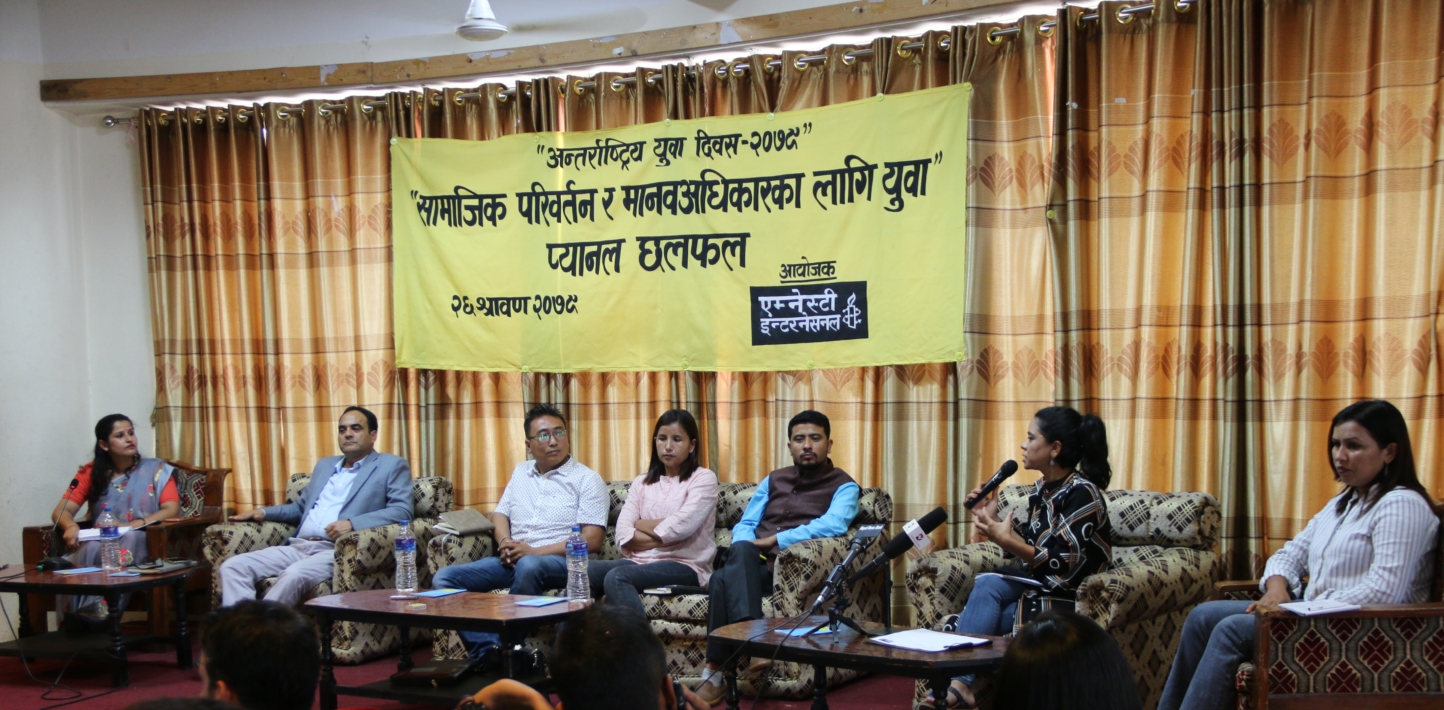On 11 August, Amnesty International Nepal organized a panel discussion programme entitled “Youths for Social Change and Human Rights” on the eve of the international youth day. The discussion programme aimed to highlight the role of youths in bringing social change, and to foster an encouraging space for all to express freely and openly including against ill practices, misgovernance, barriers to justice and rule of law.
The event also tapped on Amnesty International’s global flagship campaign “Protect the Protest” which aims to protect and foster people’s right to protest in the context of shrinking civic space everywhere owing to a range of reasons including the rise of populism, authoritarianism, technological onslaught on people’s right to privacy, increasing use of emergency powers, and criminalization of protestors, among others.
The event also aimed to strengthen intergenerational solidarity by providing space for young leaders to share their experiences and to call for a more equitable, just and fairer world.
Amnesty Nepal’s Chair Bipin Budhathoki welcomed the guests and participants of the programme by highlighting the role of youths in both subverting the societal stereotypes and biases and claiming roles to steer the changes in various spectrums of life. He also shed light on the situation of shrinking civic space, and the need for all of us to be agile and forthcoming to safeguard our right to speech, expression and assembly.
Also in the event, Mr Nain Singh Mahar, central committee member of Nepali Congress and President of Institute of Democratic School spoke at length on the critical human rights challenges in Nepal while highlighting the need for people to be wary of their respective civic duties while claiming rights including the rights to freedom of expression, opinion and the right to protest.
The programme was then followed by a very lively panel discussion which was moderated by Ms Shachita Kuikel, General Secretary of Amnesty Nepal. The panelists included Dujang Sherpa, President of Nepal Student Union, Pancha Singh, President of All Nepal National Student Union (Revolutionary), Sunita Baral, President of All Nepal National Student Union and Gita Rasaili, Vice Chair of Conflict Victim Women’s Network. The speakers shed light on the context of civic space in Nepal, the intersectional challenges faced by the youths in leadership spaces, and the future prospect for the youths to build a harmonious culture of intergenerational respect, equity and solidarity.
The full discussion is available here:


